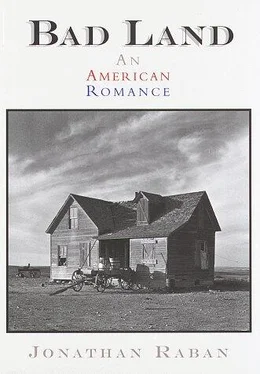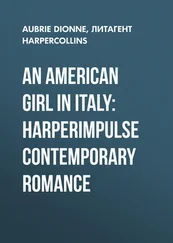The Noxon gun shop, I noticed, though it was in rifle and shotgun country, advertised itself with a not-very-well-drawn picture of an automatic pistol on the wall: a weapon meant for shooting people, not pheasants or deer.
When, earlier in the year, a bomb destroyed the Alfred P. Murrah federal building in Oklahoma City, killing 168 people, the gist of every column and editorial that I saw was Terror in the Heartland: How Could It Happen Here? The tone was always aghast, and there was much lamentation over the fact that the bomb appeared to have been planted by an American from the heartland, and not by the person of Middle Eastern appearance who had been promptly seized by the FBI.
In private, and closer to the so-called heartland, I heard a quite different response. “Any farm kid could have done it. You’d think it would happen more often than it does.”
Farmers in the West regularly made bombs. They used them to blast stumps out of the ground, blow up walls of rock, and make quick work of ditch digging. The sound of distant explosions was part of the everyday fabric of country life.
“If I were to start on it now, this morning, I could have it ready to blow up a federal building by two o’clock this afternoon. So could you.”
Fertilizer, saturated in diesel fuel, and packed into a confined space (like that of a rental van), is more stable and economical than dynamite, and needs only a detonator to set it off.
My informant fished a suitable detonator out of a drawer. “Like this.” An Atlas blasting cap, the size and shape of a refill cartridge for a ballpoint pen, with a loop of yellow and orange wire attached to its back end. Blasting caps could be got — against a purchaser’s signature — from any rural hardware store. You’d push the blasting cap into the explosive mixture, and complete the circuit with a battery and a doctored clock.
Ted Kaczynski was arrested at his cabin on the afternoon of April 3, 1996. A few days later, I drove back to Lincoln, to try to find out why this taciturn refugee from big-city life in Salt Lake, Berkeley, Ann Arbor, Cambridge and Chicago had chosen the high valley as his sanctuary from the urban-industrial world. Newspaper reports had described Lincoln as the heart of the heart of the backwoods — which didn’t chime with my fleeting memory of the place. Journalists from the world’s press were still quartered in the town’s half dozen motels, so I packed my fly rod, and went to Lincoln as an uncredentialed fisherman, scoping out the Blackfoot River.
I stayed at the Lincoln Lodge Hotel, a fine log pile, built as a dude ranch in the 1920s, when Lincoln was beginning to make itself known as a hunting and fishing resort. It was now run by Bill and Diana Holliday. Diana was from Ismay — had gone to school at Whitney Creek — and we traded gossip from the far east of the state. She’d never gone back to the homestead on which she had grown up. Her memories of Ismay were of penury (“There were five of us children, and the family lived on $90 a month. This was around 1960. For clothes, my mother used to go to the dump at Terry …”), dust and bitter cold. She had longed to escape to a greener, richer world. She’d lived in Great Falls. “And that was so green to me, after Ismay.” Last summer, she and her husband had bought the old hotel in Lincoln, and they were in love with the town — its wateriness, its woods, its air of unpretentious prosperity.
“When I heard on the radio that they’d caught the Unabomber in a ‘remote’; part of Montana, I thought they must mean someplace like Jordan. I couldn’t believe it when they said Lincoln. This isn’t ‘remote’!”
“To a reporter from New York, I suppose Lincoln might look like the wilderness. Maybe that’s how it looked to Ted Kaczynski too.”
I took an evening stroll through town. Lincoln was an extended park of rustic cabins, trailers and R.V.s, each on its own tree-shaded plot. Some were summer rentals, some were lived in year-round. Novelty windmills creaked in front yards. Antique wagon wheels were propped against the sides of houses, in honor of the pioneer past. Most of the year-rounders had some cottage industry to support them — they were taxidermists, wood-carvers, flytiers, or they cut out and painted plywood butterflies. I peered through the window of the Lost Woodsman Gallery — sculptures by Rowley, whose rough-cut bears, Indians and frontiersmen, hewn from pine logs, were masterworks of Easter Island kitsch. The ornamental wagon wheels came, I guessed, from Roly Poly Land Antiques.
A herd of tame deer wandered from cabin to cabin, scrounging for leftovers. People put out bowls of oats for them, and restaurants fed them on the wilted remains of their salad bars. Fat and trusting, the deer were the town’s communal pets.
So Kaczynski, mooning around Montana in ’71, had lit on this idyllic family-vacation spot, with its friendly animals and tinkling streams. To the Chicagoan, the docile student, raised on the high-school American classics, Lincoln must have looked like Thoreau’s pond, Twain’s river and Fenimore Cooper’s forest all conveniently rolled into one.
I sent myself to sleep reading the Unabomber’s tangled thesis, “Industrial Society and Its Future.” The author was a very urban nature lover. “The positive ideal that we propose is Nature,” wrote “FC,” but his idea of Nature was infuriatingly hazy and sentimental. He doted on the early settlers of the West for eating “wild meat” and living in such isolation that “they belonged to no community at all, yet do not seem to have developed problems as a result.” With characteristic bathos, he opined that “Nature makes a perfect counter-ideal to technology for several reasons … Most people will agree that nature is beautiful.” The word natural cropped up in sentence after sentence; FC’s habitual synonym for “good.”
In the dead center of the thesis — paragraph 115 out of 232—was a fragment of miserable autobiography; an unmistakable cry from the Unabomber’s heart:
The system HAS TO force people to behave in ways that are increasingly remote from the natural pattern of human behavior. For example, the system needs scientists, mathematicians and engineers. It can’t function without them. So heavy pressure is put on children to achieve in these fields. It isn’t natural for an adolescent human being to spend the bulk of his time sitting at a desk absorbed in study. A normal adolescent wants to spend his time in active contact with the real world. Among primitive peoples the things that children are trained to do tend to be in reasonable harmony with natural human impulses. Among the American Indians, for example, boys were trained in active outdoor pursuits — just the sort of thing that boys like …
I never camped in the woods! I never went fishing! I never had an air gun! They never let me be a boy!
Ted Kaczynski was turning thirty when he arrived in Lincoln. Was it his lost boyhood of “active outdoor pursuits” that he found here?
Next morning, Bill Holliday said, “He wasn’t too different from a lot of folks round here. Vets, mostly. They make do without electricity; they hunt and fish — live off the fat of the land; they keep themselves to themselves. You don’t pass the time of day with them — not until they speak first.”
“They ride bicycles?”
“A lot of people get around on bicycles. It’s so flat—” said Mrs. Holliday.
I discussed wet-fly presentation with Mr. Holliday, and went out to look at the river. The Blackfoot swirled greenly under the road bridge half a mile from the hotel; it was too swollen with snowmelt to be fishable, but it was a magnificent river, and full of big cutthroat trout, rainbows, wild browns and whitefish. If only Kaczynski had been arrested a month later, I would have had some prime fishing. As it was, I followed Stemple Pass Road over the bridge toward the Kaczynski place with Humbug and Poor-Man Creeks chattering within earshot of the road. It was a pleasant forty-minute walk, past summer homes and pastureland, to the school bus stop beside Gehring’s Lumber, where the FBI had pinned their search warrant to a post, and officiously blocked the logging trail that led to the Kaczynski cabin. The cabin was just out of sight, but I could see the satellite dish of his immediate neighbor, like a creamy giant mushroom in an aspen glade.
Читать дальше












